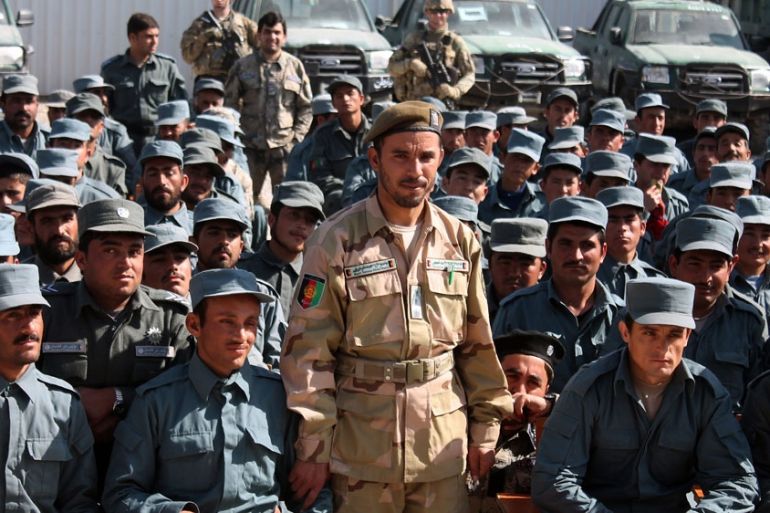Profile: Who was Afghanistan’s General Abdul Raziq?
Kandahar police chief known for being a powerful commander and feared enemy of the Taliban was killed on Thursday.

Afghan General Abdul Raziq, 39, known for his fierce stance against the Taliban, was killed along with a local intelligence commander Abdul Mohmin when a bodyguard opened fire after a meeting in the governor’s compound in Kandahar.
Kandahar Governor Zalmay Wesa was also severely wounded on Thursday and contradictory reports whether he survived could not be confirmed early on Friday.
Keep reading
list of 4 itemsPhotos: Tourist numbers up in post-war Afghanistan
Taliban ban on girls’ education defies both worldly and religious logic
Afghanistan calls for ‘respect’ after Cricket Australia snub
General Scott Miller, the top US commander in Afghanistan who attended the meeting with Abdul Raziq only moments earlier, was not hurt in the attack. Three Americans were wounded.
In a claim of responsibility, the Taliban said they targeted both Miller and Raziq.
“It’s the loss of a patriot,” US defence chief James Mattis said on Friday, referring to Raziq’s death.
Taliban hatred
Born in the Spin Boldak district of Kandahar, Abdul Raziq Achakzai, an ethnic Pashtun, was from the Adozai subtribe of the Achakzai tribe.
His father and uncle were killed by the Taliban in 1994. Soon after, Abdul Raziq and his family fled to Pakistan until the Taliban was overthrown in the US-led invasion of Afghanistan in 2001.
Upon returning, he joined an anti-Taliban force in Kandahar under Gul Agha Sherzai and Fayda Mohammad, which overthrew the Taliban government in the city.
He started off as a young border policeman working between Kandahar and Pakistan’s Balochistan province in 2001. Over the years, he steadily rose in the ranks of the security forces.
|
|
Because of his strong commitment to fighting the Taliban, Abdul Raziq became a favourite of the US-led coalition and received significant aid for training and weapons from the United States over the past few years. He was viewed as one of the country’s most effective leaders, crediting him with keeping the Taliban in check in Kandahar.
He was known to stay away from politics and instead dealt with the Taliban and other armed groups in a bid to maintain stability. A critic of Afghan President Ashraf Ghani, Raziq also led a militia in Kandahar.
‘Torturer-in-chief’
Rights group widely criticised Abdul Raziq for allegedly ordering the torture and mistreatment of detainees he suspected of having Taliban affiliations.
New York-based Human Rights Watch called Abdul Raziq “Kandahar’s torturer-in-chief”. It released a report describing credible allegations that Abdul Raziq was “widely suspected of complicity, if not of personal implication, in severe human rights abuses, including extrajudicial killings and … secret detention centers”.
Under Abdul Raziq’s watch, detainees underwent “suffocation, crushing the testicles, water forcibly pumped in the stomach and electric shocks”, it said.
All allegations had been denied by Abdul Raziq.
Raziq took over as Kandahar’s police chief after his predecessor, Khan Mahammad Mojayed, was killed in a suicide attack in 2011.
He had survived several assassination attempts against him over the years. In an interview with TOLOnews, a local Afghan news channel, he said he escaped 29 attempts on his life.
Last year, he narrowly escaped an attack in which five diplomats from the United Arab Emirates were killed in Kandahar.
In 2012, he was targeted by a suicide bomber and the same year his convoy was struck by a roadside bomb.
On October 18, the news of his death was mourned by many Afghans, including US government and security officials.
“Today I lost a great friend LTG Raziq. We had served together for many years. Afghanistan lost a patriot, my condolences to the people of Afghanistan. The good he did for Afghanistan and the Afghan people cannot be undone,” Colonel Dave Butler, a spokesman for US forces in Afghanistan, quoted Miller as saying.